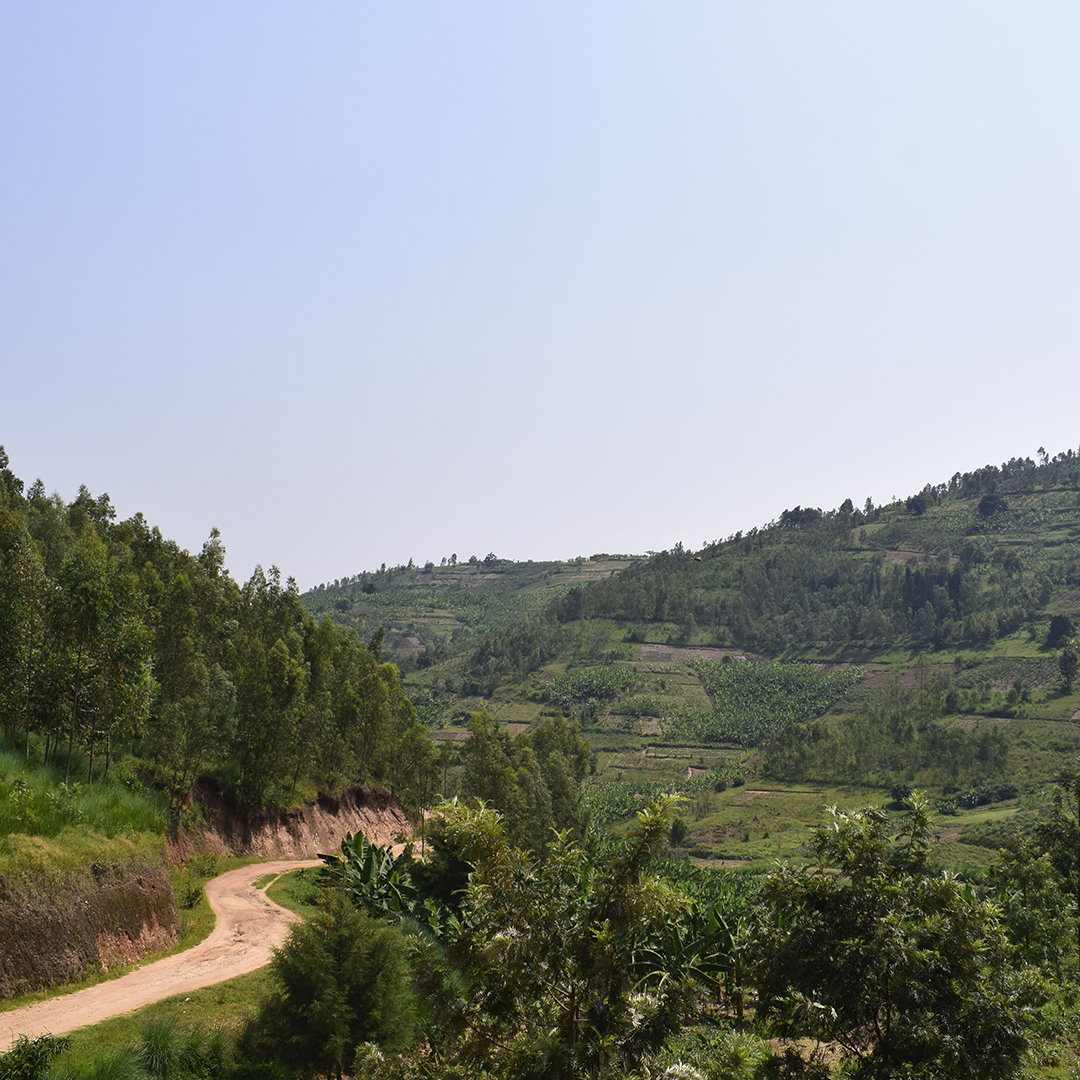
Launched in partnership with Twin Trading and the Scottish Fair-Trade Forum in 2017, the Coffee Market Building for Peace and Prosperity Project 2 was a five-year initiative working with eight coffee co-operatives in the country’s western and southern regions.
The aim of the project was to increase the capacity of eight Rwandan coffee co-operatives by:
- delivering business, management and leadership training
- improving quality control and each co-op’s “cupping scores”
- streamlining and better enabling infrastructural processes
- widening access to international markets
- encouraging the adoption of clean tech innovations
- working with communities, particularly women and young people, to overcome systemic barriers to economic growth.
The Rwandan coffee sector faced near collapse in the late 1990s because the quantities of coffee beans were too small to attract demand from buyers, and the quality was not of a high enough quality to attract a premium price from global buyers. Vital infrastructure was also lost during the 1994 genocide.
In 2002 the National Coffee Strategy was developed to position Rwanda as a speciality coffee producing country. This strategy called for building capacity and skills amongst coffee growers and workers at coffee washing stations, improving extension services, strengthening cooperatives and developing a Rwanda brand identity. Further revisions in 2006 and 2009 focussed on mobilising the coffee value chain to meet increasingly stringent quality and traceability requirements. The importance of shape, colour, taste, and aroma qualities, and efficient washing, drying and roasting, was emphasised.
The Coffee Market Building for Peace and Prosperity project was designed to fully align with national strategies. Challenges Groups’ experience in using a systemic market driven approach means it was well placed to address key value chain barriers to effective growth. Our other partners, Enactus and Matthew Algie Coffee, also bring market specific skills and expertise that support cooperatives to perform, improve coffee quality, and enhance livelihoods.
The story of coffee and Rwanda is a compelling one. It is the story of how a developing industry helped transform livelihoods, improving income and supporting the healing process in rural communities. All this while also driving national economic growth. It is a story of how people, in a crisis, worked together in cooperatives and communities to overcome the loss of life and infrastructure. The potential of the Rwandan coffee sector has not been fully realized, and we seek to contribute to that realization by working to bring social, environmental and economic benefits to those in the coffee industry and rural areas.


The project partners intend to collaborate to address barriers to growth by:
- Heightening operational effectiveness through the provision of tailored training in business management, including budgeting, cost management, book-keeping, price risk management and cash flow management
- Removing barriers that have stalled reinvestment into new stock.
- Increasing the ability to improve coffee quality and production processes.
- Improving the ability to obtain, train and retain qualified staff, including young people, in a way that will strengthen organisational capacity.
- Enabling enterprises to take advantage of the growing market for traceable, high-quality coffee from small cooperatives and POs.
- Adoption of environmentally friendly agricultural best practices so it is compliant with Fairtrade, Organic, and/or RFA and UTZ certification (dependent on PO, location and coffee quality).
- Addressing the lack of effective marketing and awareness of the international speciality coffee sector.
- Helping enterprises to identify and address key value chain bottlenecks
- Supporting community initiatives in business diversification, sustainability and capacity building
- Watch our video to find out more about Challenges’ Rwandan Coffee Project
It has been five years since the project launched in Rwanda. We are happy and excited to say the work with coffee cooperatives spans over 5000 direct beneficiaries and countless more families.
Operating capacity has dramatically increased at most co-operatives after our accredited business management training was delivered. (812 people trained, 459 women).
Over 800 young people received our training in entrepreneurship, and over 35 enterprises received our loans. The result is improved agricultural and rearing practices and value chain enhancements. Employment opportunities have increased, and this has reduced rural-urban migration.
Community livelihood barriers have reduced, because of the increase in women engaged in the project (173% increase).
35 start-up businesses were launched. 19 of these were women-led.
Our strategic alliance with Sustainable Harvest has put the cooperatives in a stronger place in the international market, with increases in new buyers introduced (average 10 per co-op), volumes of coffee exported (18%- 528600 kilograms), bean quality (Cupping scores of all cooperatives are now in the speciality coffee category), marketing improvements.
If you are an enterprise ecosystem support organisation, charity or funder who would benefit from partnering with us please contact us.